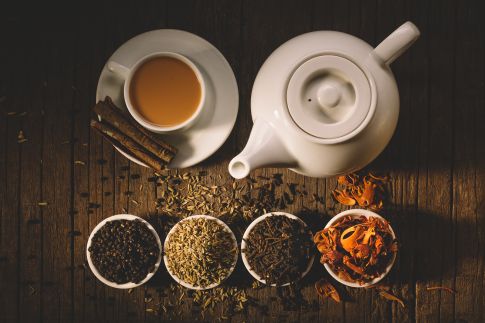Tea is made from the leaves and flowers of the Camellia sinensis plant. Tea has been used for centuries as a beverage and as a medicinal herb. The tea plant is a popular garden plant because of its attractive flowers and long, slender leaves. There are many different types of tea, including black, green, oolong, white, and herbal.
Japanese green tea is the most popular type of tea in the world. Green tea is made from young, tender leaves that are steamed or boiled before being dried. Green tea has a mild flavor and is often believed to be caffeine-free.
In England, black tea is the most popular type of tea. Black tea is made from the leaves of the Camellia sinensis plant that have been fermented and then dried. Black tea has a stronger flavor than green or oolong tea and is often used to make coffee substitutes.
Herbal teas are made from leaves, flowers, and roots that have been blended together to create a unique flavor. Herbal teas are often used to treat health problems such as headaches, anxiety, and insomnia.

The Many Health Benefits of Tea
Tea has many health benefits. Here are just a few:
Tea has anti-inflammatory properties
The tea plant contains catechins, which are antioxidants that have anti-inflammatory properties. Tea can help reduce the symptoms of arthritis, asthma, and other conditions that are associated with inflammation
Tea can help improve cognitive function
Tea has been shown to improve cognitive function in people who are suffering from Alzheimer’s disease and other forms of dementia. Tea also has anti-inflammatory properties, which may help protect the brain from damage.
Tea can help reduce the risk of cancer
Tea is a source of antioxidants, which can help reduce the risk of cancer. Tea also contains caffeine, which has been shown to have anti-cancer properties.
Tea can help improve heart health
Tea has been shown to improve heart health in people who are suffering from conditions such as coronary artery disease and heart failure. Tea also has anti-inflammatory properties, which may help protect the heart from damage.
Tea can make you feel more alert
Most tea contains caffeine, which can help you feel more alert. Caffeine also has stimulant properties, which can help you stay focused and awake.
Tea can help improve your mood
Tea contains catechins, which are antioxidants that have mood-boosting properties. Tea can help improve your mood and reduce the symptoms of anxiety and depression.
Is Tea Good For Plants?
Yes, tea is good for plants. Tea contains caffeine, which is a stimulant that helps plants grow and flower. Tea also contains other nutrients, such as vitamins C and E, that are beneficial to plants. Tea can help plants resist pests and diseases, and can improve the growth and color of plants.
You can pour tea directly onto the soil around plants or use tea bags to water plants. Tea can also be used as a fertilizer. When using tea as a fertilizer, be sure to dilute it according to the plant’s needs.


